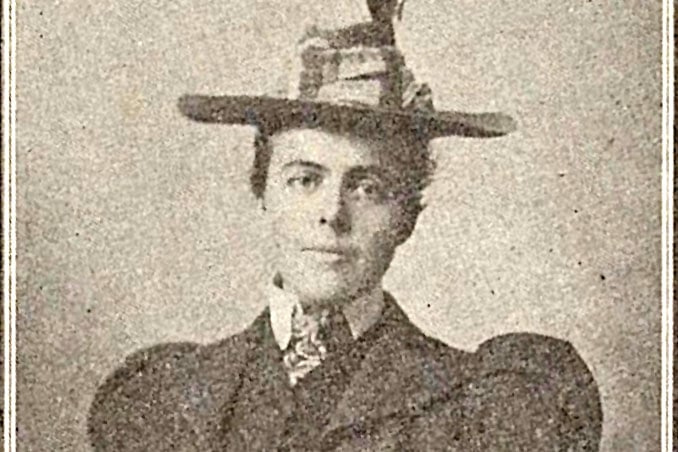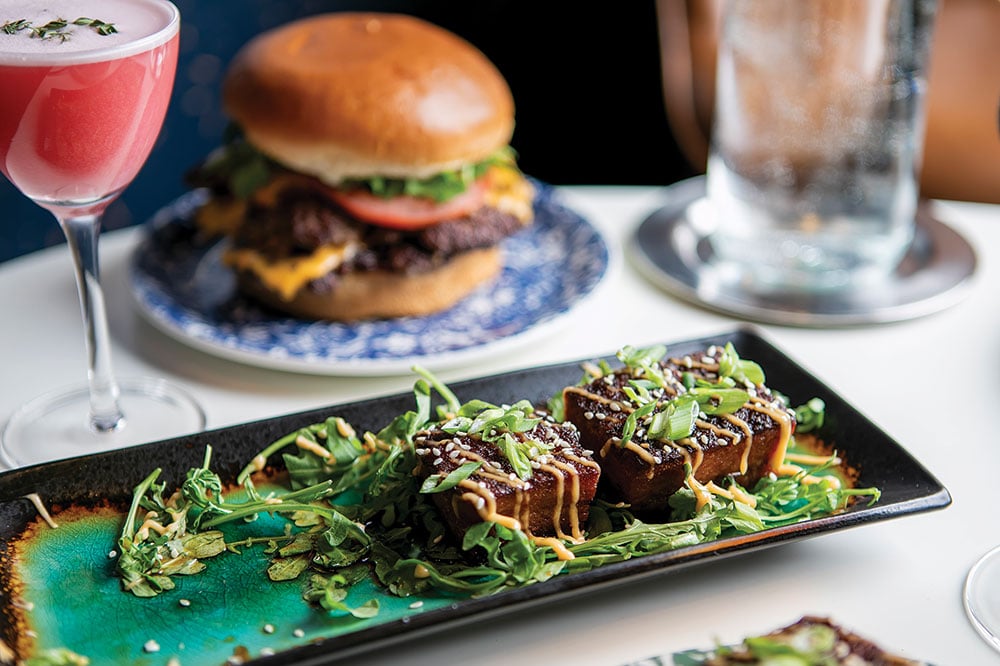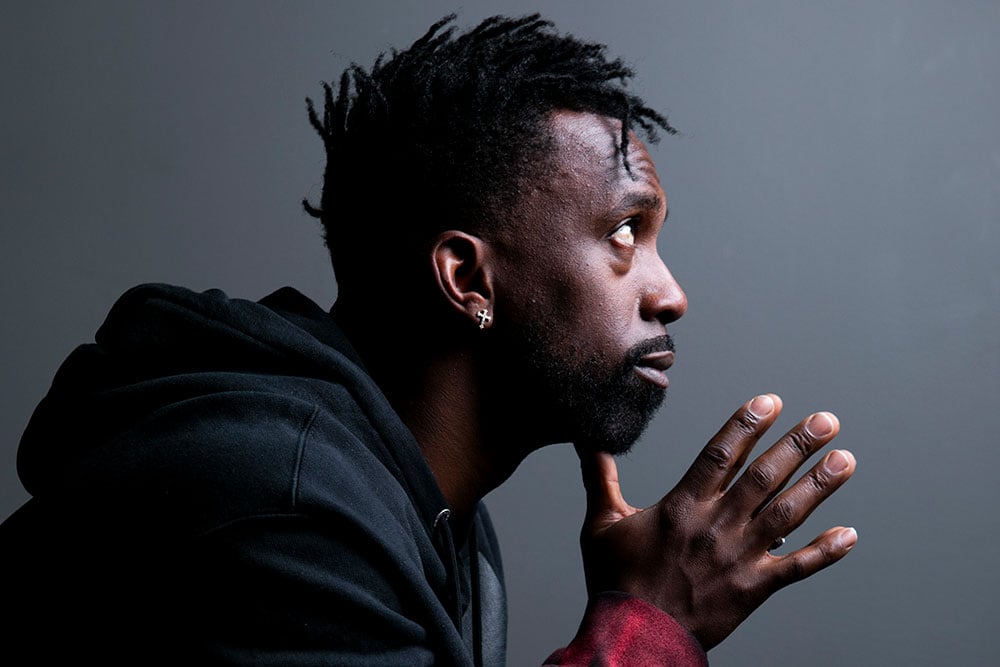Stories of our Neighbors: What Rhymes With Hope?
Slam poet Adríana E. Ramirez on the importance of poetry in troubled times.
Remember the rhyme: April showers bring May flowers? It’s not the reason the Academy of American Poets chose April as National Poetry Month, but it’s fun to say.
Adríana E. Ramirez — a Mexican-Colombian writer, critic and performance poet based in Pittsburgh — says fun is something poetry offers us when we need it most.
“Poetry is distilled life, distilled joy,” says Ramirez, 38, a nationally ranked slam poet who founded Nasty Slam in Pittsburgh and has performed on slam stages throughout the United States.
National Poetry Month, established in 1996, brings together tens of millions of readers and poets to celebrate poetry’s essential place in our lives.
Ramirez, who lives in Highland Park with her husband, slam enthusiast Jesse Welch, and their two children, is a 2019 recipient of the Carol R. Brown Creative Achievement Awards, among other honors. Ramirez co-hosts the podcast “Charla Cultural,” a City of Asylum & Aster(ix) Journal co-production. Her debut work of nonfiction, “The Violence,” is forthcoming from Scribner.
I was always that strange kid with a notebook. In junior high and high school, I would translate my maudlin feelings into poems. Later, I’d go to open mics and read my maudlin poems out loud. I’d wear a lot of eyeliner.
My first love was A. A. Milne, “Winnie the Pooh.” Milne has a book of poetry for children called “When We Were Very Young.” There’s a picture of me in third grade holding it to my heart. I can still recite poems from it.
Poetry’s so accessible. You can read a poem, any poem, in one sitting. Read “Moby Dick?” Terrifying. Read a poem? OK.
A poem can change you. Just like that. It’s fun to go to a poetry reading and hear poets read out loud. With poetry, you can hear something in 2 minutes that rocks your world. What other form does that? Religion, maybe.
I gravitated toward spoken word because I found it delightful to have so much thrown at you in one moment. Kids today are watching poetry online. They’re watching poetry on the TikTok.
I like adding articles in front of things, so everyone knows how old I am.
I think the popularity of internet poetry speaks to the fact that just because we think academic poetry is inaccessible, street poetry — which is where I come from — is born accessible. It’s hip-hop, ancient troubadours, children’s rhymes.
Poetry like that? It’s for everyone.
One of the best things I’ve gotten to do is teach a high school poetry workshop. The kids get so into it. We’re not sitting there analyzing Robert Frost, this path, that path. We’re looking at what we can do with our own language, in our time, from our own lives.
When people say poetry is inaccessible, that speaks to how poetry exists in our cultural discourse. Because some people decided collectively that poetry is inaccessible, that’s reflected on every level. Poets have to supplement their incomes. The best-selling poet in America is not living off their book sales. The best fiction writers may be. That tells you something about what we value as a culture.
At the same time, for people of color, street poetry, YouTube poetry, holds value. There’s a reason Amanda Gorman resonates with kids now.
Diversity is so crucial. Sometimes when we say diversity, it becomes shorthand for race. But it’s about diversity of lived experience. Reading a good book of poetry as a kid allows you to see how somebody else, who may seem very different from you, is wrestling with a lot of the same issues you’re wrestling with. It makes the world less lonely.
My parents both taught me to recite poetry. They would trot me out when I was 4 years old and make me recite a poem. But neither my mother nor my father was ready when I decided to be a poet. They figured poetry is a hobby. My dad plays guitar, but he doesn’t want to be a musician. My parents worried about my future.
I taught at the University of Pittsburgh for 10 years. Now I’m writing full time, but I’m also a mom. I’m lucky my husband makes enough money so I can both parent and write. I’ve got a 3-year-old son and a little girl who just turned 2.
Some days it feels like we’ve been in a pandemic for 10 years. I always laugh when I say “the before-times,” like we’re in some post-apocalyptic bubble.
My bright, beautiful 2-year-old daughter wears a mask perfectly because she’s seen people wearing masks all her life. This is a brave new world. But I still believe art, the humanity of that, can save us.
I suffer from depression. There are days that feel eternal. Sometimes I just want to go sit at a bar and drink and laugh and not worry what vaccinations the stranger next to me has had.
What can poetry say to us in this dumpster fire?
Well, we’ve made it this far. We have to keep going.
When things get really bad, we always look to the arts, to poetry, to guide us out or forward.
Me, I’m looking forward to a time where I can see other writers. Writing is an isolating occupation. It’s something done alone in the dark. I’m looking forward to that moment when I can come out with all the other cave dwellers and be like, “What’s up?”
Oh gosh. Imagine that.
Find Out More:
Visit Adríana E. Ramirez’s website at aeramirez.com
Lori Jakiela just published a new collection of poetry, “How Do You Like It Now, Gentlemen?” and is the author of several other books. She lives in Trafford and directs the Creative and Professional Writing Program at Pitt-Greensburg. For more, visit: lorijakiela.net
If you know someone who would like to share their story, or if you’d like to share your own story for this monthly series, reach out to us at: pghstories@gmail.com














